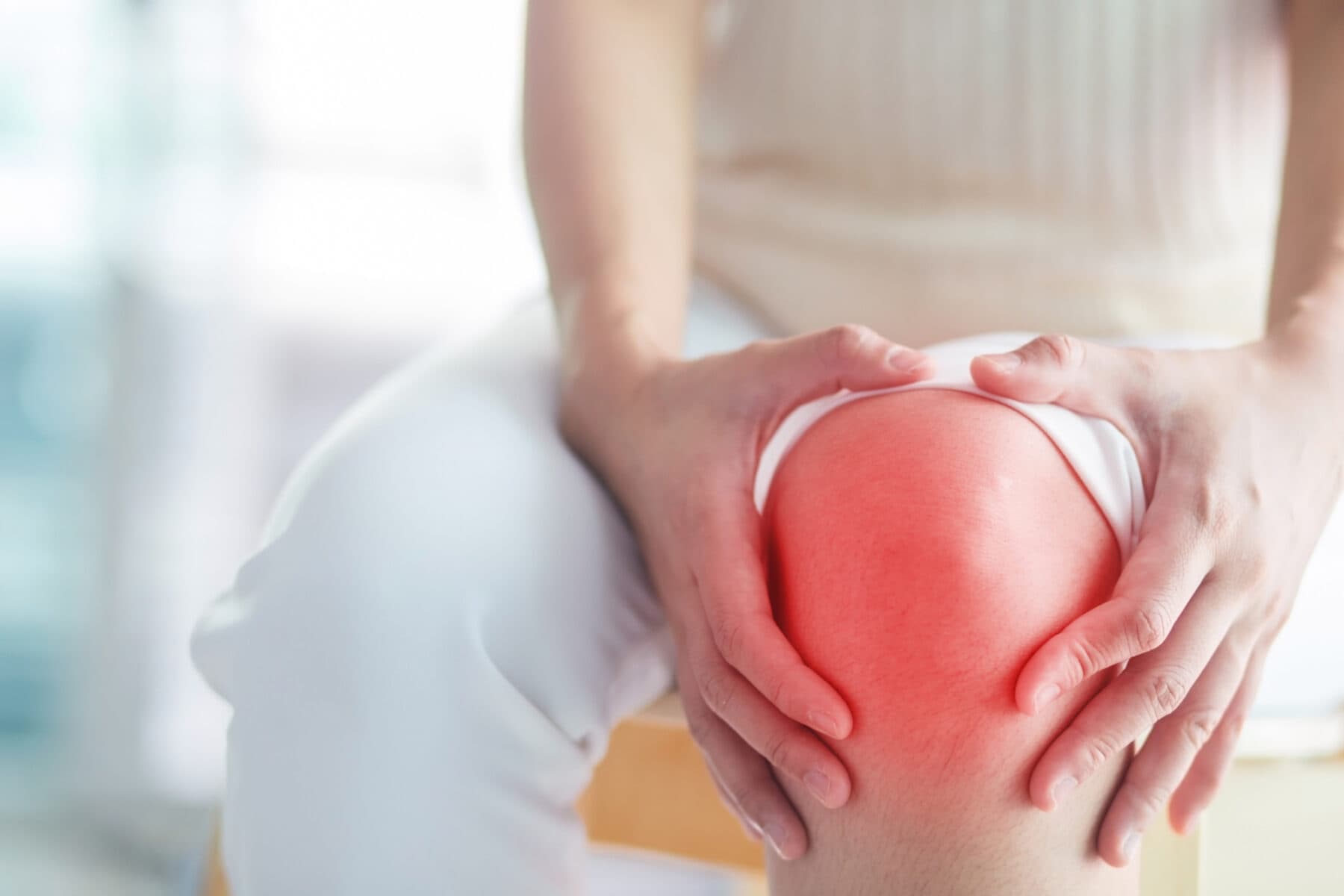20th April 2023
Future Proof Your Joints – Two Leading MSK Experts Discuss The Early Warning Signs of Arthritis
To help you assess early warning signs of arthritis, your risk and put in place positive strategies for good joint health, we put three key questions to two leading musculoskeletal (MSK) experts.

When you hear the word “arthritis” you might only associate it with older people – however, it can affect people of all ages – even children and teenagers.1 In total, around 8.75 million people in the UK over the age of 45 have sought treatment for this condition.2 It isn’t a single condition – there are several different types – which all have the following debilitating symptoms in common; pain, swelling and stiffness in the joints. It can be difficult to pinpoint exactly what causes arthritis, but several factors can increase the risk, so it’s worth understanding these at an early stage. To help you assess early warning signs of arthritis, your risk and put in place positive strategies for good joint health, we put three key questions to two leading musculoskeletal (MSK) experts:
1. Are there any signs a young person might notice that could mean they are likely to get arthritis when they are older?
Professor Paul Lee is a Consultant Orthopaedic Surgeon and Regeneration Medicine Doctor He was the first surgeon in the UK to use the innovative Arthrosamid® injection to treat patients suffering with knee arthritis.
Professor Lee says:
“The short answer is 'we don’t know' for certain. There are different risk factors for different types of arthritis that we know about e.g. joint pain and inflammation are the common links as well as family history and certain medical conditions. Previous injury to a joint, such damage to knee cartilage or ligament injuries necessitating surgery, is also risk factor that we should look out for. If you’re concerned about your risk of arthritis, talk to your doctor. They can help you to understand your risk factors and what you can do to reduce your risk. There is ongoing big data and AI research to look at any early signs or symptoms that could predict who might develop the condition later in life.”
2. Are there any habits that could raise your risk of arthritis when you are older?
Mr Andrew Pearse is a Consultant Orthopaedic Surgeon in Worcestershire, specialising in Sports and Reconstructive Knee Surgery, also routinely using the new Arthrosamid® injection to successfully treat people suffering from the pain caused by knee osteoarthritis, as an alternative to knee replacement surgery. Mr Pearse comments:
“Studies have shown that smoking can aggravate arthritis both in terms of the level of pain and degree of cartilage loss. Excessive weight increases lower limb joint pain (hips, knees, ankles) so weight loss can improve symptoms in joints with established arthritis. High impact exercise such as long-distance running can again aggravate joint pain especially if swelling is noticeable after exercise.”
Professor Lee concurs:
“Smoking is a particularly important risk factor for arthritis. Smoking not only decreases bone density but also increases inflammation throughout the body. This can lead to a higher risk of developing arthritis later in life.
“Being overweight is another important risk factor for arthritis as mechanically it will overload the joint. Research has also shown that excess fat tissue produces substances that can promote inflammation that causes damage to the joint.
“Our joints get nutrients and lubrication from ‘motion’, therefore a sedentary lifestyle is another risk factor for arthritis, as there it reduces blood supply to the cartilage. So, if you’re at home or working at a desk, keep wiggling about every now and then to keep your joints healthy.”
3. What should you do if you think you’re at risk of arthritis in the future?
Consultant Orthopaedic Surgeon, Mr Andrew Pearse explains:
“As there is such a strong family history link it is very difficult to “guard against” a future risk of arthritis as it is programmed into our DNA. However, maintaining a healthy weight and diet, avoiding smoking and taking regular moderate exercise, the modern medical mantra, is proven to be beneficial.
“There are some supplements such as glucosamine and chondroitin that aim to help with arthritis but, although some of my patients “swear by them”, the evidence for their benefit remains contradictory. As they are naturally occurring substances however they are safe, although if a patient is on multiple medications it is worth checking with your pharmacist or family doctor.
“It bears repeating that exercise is a key factor. Moderate exercise that does not induce pain or swelling in a joint can be assumed to be safe. Low impact exercise such as swimming and cycling are especially good as the impact of running longer distances can irritate arthritic joints. I have had to encourage marathon runners with arthritis to consider buying a bike! Keen triathletes with painful knees can train on the bike and in the pool and leave the running for the event.”
Professor Lee adds:
“Another modifiable factor is to look at the way we walk. Perhaps a new pair of shoes with adequate soles and ankle support would do the trick. Motion analysis and joint loading assessment can be done very easier nowadays. This may help to correct the loading of the joint and prevent damages that lead to arthritis.”
Notes to Editor:
Arthrosamid® is a new type of treatment for knee osteoarthritis that offers patients an effective alternative to current therapies.3 It is an injectable polyacrylamide hydrogel (iPAAG) for intra-articular administration. A non-biodegradable injectable implant, Arthrosamid® delivers long-acting pain relief – improving the quality of life for patients with knee osteoarthritis.3
References:
1. Arthritis | Causes, symptoms, treatment | Versus Arthritis
3. Bliddal H, Overgaard A, Hartkopp A, Beier J, Conaghan PG, et al. (2021) Polyacrylamide Hydrogel Injection for Knee Osteoarthritis: A 6 Months Prospective Study. J Orthop Res Ther 6: 1188.
